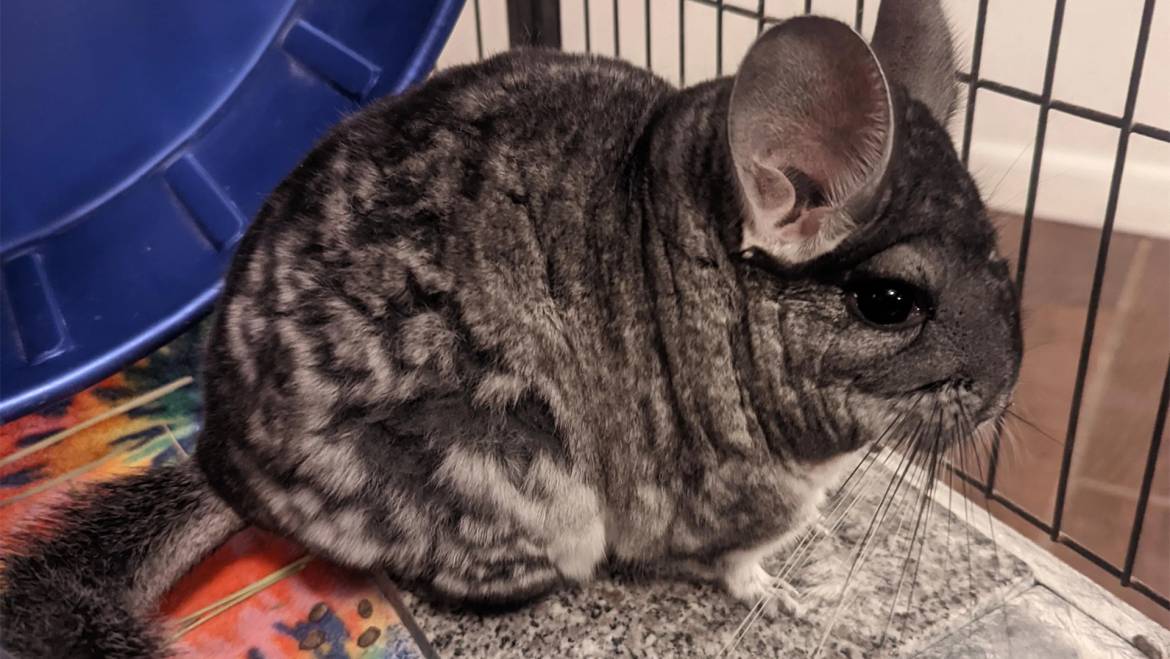Chinchillas are charming, intelligent, and playful creatures, making them great pets for individuals of all ages. However, like any other animal, they can experience anxiety, which can lead to health problems and affect their overall well-being. Unfortunately, unlike other pets, chinchillas may not show obvious signs of anxiety, making it difficult for pet owners to identify the problem. In this article, we’ll take a closer look at anxiety in chinchillas, including its causes, symptoms, and treatment options.
Causes of Anxiety in Chinchillas
Anxiety in chinchillas can be caused by a variety of factors, including environmental changes, social isolation, health issues, and lack of mental stimulation. Some chinchillas may also be predisposed to anxiety due to their genetic makeup. Additionally, chinchillas that have had negative experiences in the past, such as abuse or neglect, may be more prone to anxiety.
– Environmental Changes
Chinchillas thrive on routine and can become anxious when there are sudden changes in their environment. Moving to a new home, introducing new pets, or changing their living conditions can all trigger anxiety in chinchillas.
– Social Isolation
Chinchillas are social animals and require social interaction to maintain their mental health. Lack of socialization can cause chinchillas to become anxious and depressed, leading to a decline in their overall health.
– Health Issues
Chinchillas that are suffering from an illness or injury may experience anxiety due to their discomfort or pain. Additionally, certain medical conditions, such as dental issues or respiratory problems, can lead to anxiety in chinchillas.
– Lack of Mental Stimulation
Chinchillas are intelligent animals and require mental stimulation to keep their minds active and engaged. Lack of mental stimulation can lead to boredom and anxiety, especially in chinchillas that are kept in small cages or have limited access to toys and other forms of enrichment.
Symptoms of Anxious Chinchillas
The symptoms of anxiety in chinchillas can be difficult to spot, as they may not show obvious signs of distress. However, some common symptoms of anxiety in chinchillas include:
- Restlessness or pacing
- Loss of appetite
- Over-grooming or self-mutilation
- Aggressive behavior towards other animals or humans
- Hiding or avoiding interaction with humans
- Chewing on cage bars or other objects
- Excessive vocalization or screaming
Treatment Options for Anxiety in Chinchillas
If you suspect that your chinchilla is experiencing anxiety, it’s important to take action to help alleviate their symptoms. The first step is to identify the cause of the anxiety and take steps to eliminate or reduce the trigger. Additionally, providing mental stimulation, socialization, and a comfortable living environment can all help to alleviate anxiety in chinchillas.
– Eliminating the Trigger
If your chinchilla’s anxiety is caused by an environmental change or social isolation, taking steps to eliminate the trigger can help to alleviate their symptoms. For example, if your chinchilla is anxious due to a recent move, try to establish a routine and provide a comfortable living environment to help them feel more secure. If your chinchilla is experiencing anxiety due to social isolation, consider getting them a companion or spending more time with them each day.
– Mental Stimulation
Providing mental stimulation is another effective way to alleviate anxiety in chinchillas. This can include providing toys, hiding treats in their cage, and offering them a variety of chew toys to keep their minds occupied. Additionally, providing opportunities for exploration and play can help to keep your chinchilla mentally stimulated and engaged.
– Socialization
As social animals, chinchillas require socialization to maintain their mental health. If your chinchilla is anxious due to a lack of socialization, consider introducing them to another chinchilla or spending more time interacting with them each day. However, it’s important to introduce chinchillas slowly and carefully to avoid fights or aggression.
– Professional Help
If your chinchilla’s anxiety is severe or does not improve with the above methods, it may be necessary to seek professional help. A veterinarian who is experienced with chinchillas can help to identify the underlying cause of your chinchilla’s anxiety and recommend appropriate treatment options. Additionally, a professional animal behaviorist can help to address any behavioral issues that may be contributing to your chinchilla’s anxiety.
Preventing Anxiety in Chinchillas
Preventing anxiety in chinchillas is often easier than treating it. By providing a comfortable and stimulating living environment, social interaction, and regular veterinary care, you can help to prevent anxiety in your chinchilla. Additionally, providing a consistent routine and avoiding sudden changes in your chinchilla’s environment can also help to prevent anxiety.
Anxiety can be a serious issue for chinchillas, but with proper care and attention, it can be managed effectively. By understanding the causes and symptoms of anxiety in chinchillas, you can take steps to identify and alleviate your chinchilla’s symptoms. If you suspect that your chinchilla is experiencing anxiety, it’s important to seek professional help to ensure that they receive the best possible care. With patience and dedication, you can help to ensure that your chinchilla remains happy and healthy for years to come.







